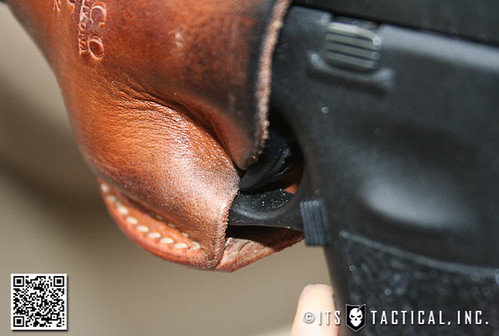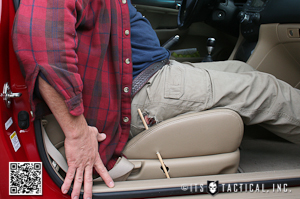I know, sorry :-( you have been very helpful. the big problem I have around here is that I want a firearm for a life time, plus what I said above. I dont want to sell any firearm or to buy any used one. That make me really nervous. Plus, I am "burning" almost a monthly income here, and when I see usa MSRPs i want to cry

I'm just giving you some playful grief. Don't let anyone rush you into making your decision. Given the prices you are faced with, the decision is bigger than what we Norteamericanos are faced with.
So... I think I want the G26 for aaaaallll the thinks you guys have said, concealability, its on sale, and would be a better gun for my wife to shoot than a beretta

The key considerations for your petite wife are grip, trigger reach, and weight. The best way to check the first two is to have your wife hold the gun. If she has small hands the Beretta M9A1 you were pondering would likely fail. One of the reasons the US military is thinking of finding a replacement is because many women find the M9 grip too large. If she can't go to the gunshop with you, any pistol with a modular grip (interchangeable backstraps) should be able to be fitted to her. The Beretta PX4 Sub-Compact, the Glock 26, and the Sphinx SDP Compact all have interchangeable backstraps.
The heavier the gun, the less the free recoil energy. So, if your wife is recoil sensitive, heavier is better, all other factors held constant. (A Beretta PX4 Storm Compact, not one of your options, has a rotating barrel recoil action, which does a good job of absorbing recoil.)
How stupid would be to just pick it up in the store and go to the test without having fired any gun that size before? It is a BS test. An 8" bullseye 25 feet away and you have to hit it 5 times with 8 rounds
I know for many of you in the USA that would be the silliest thing ever, but considering my situation.... what do you say?
Can you rent a gun at the range to take the test? That way you could practice before, so could be sure of passing. An 8" target at 25 ft is 92 minutes of angle, which is huge, but offhand handgun accuracy can be pretty poor if one is inexperienced. The Glock DAO trigger is a hindrance to accuracy until one is practiced with it. I'd rather take such a test cold with a handgun I could shoot in SA.
I'm in the minority here, but I think a Glock is a poor choice for a first-time handgun buyer. The reason? Safety. Please read these articles:
"Experts Find Glocks Prone to Accidents" --
http://www.freerepublic.com/focus/news/729088/posts.
"Why the police shouldn't use Glocks" --
http://www.latimes.com/opinion/op-ed/la-oe-owens-glock-accidents-20150508-story.html.
"Are Glock Pistols Unsafe?" --
http://www.hipowersandhandguns.com/are_glock_pistols_unsafe.htm.
And, this abstract:
"The risk of involuntary firearms discharge" --
http://www.ncbi.nlm.nih.gov/pubmed/17063958.
I will also caution against a subcompact, like the Glock 26, being one's first handgun, unless concealability is your paramount concern. A compact-sized gun is a great compromise between concealability and shootability. Yes, a sidearm spends far more time being carried than shot, but the only reason for carrying it is to be able to hit something when you do shoot it.
The subcompact Glock 26 weighs 22 oz, and generates 6.2 ft·lb of free recoil energy. The full-size Beretta M9A1 weighs 35 oz, and generates 4.0 ft·lb of free recoil. Less recoil generally translates into better accuracy and precision.
Consider a gun's trigger action as it effects accuracy and precision. Nothing beats a single action trigger pull, and the worst is a double action only trigger. In my experience, a DA trigger produces groups that are twice as wide (four times less precise) than a SA trigger. The Glock's DAO trigger is short and light, so it is not going to impair precision to the extent a long and heavy DAO trigger does, but it is the combination of a short and light DAO and the lack of an affirmative external safety that makes the Glock less safe than other designs.



